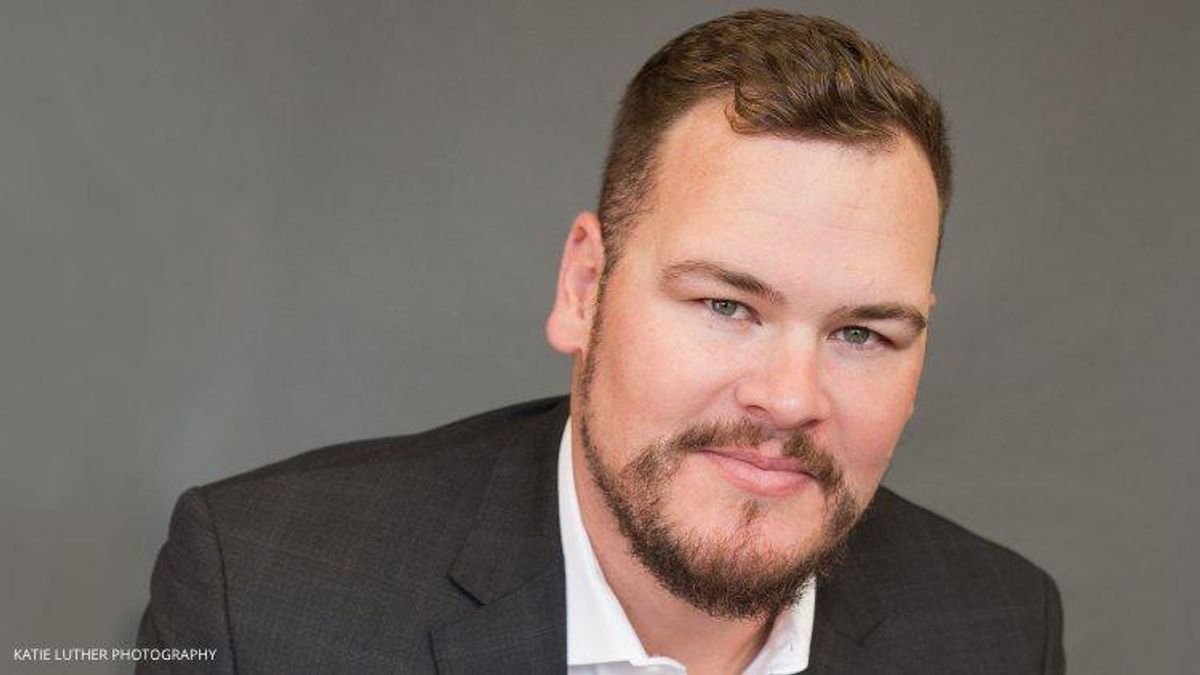
Ryan O'Callaghan has always been a big guy. Whether it was in high school hallways or on the football field, the former NFL player reveals in his new autobiography, My Life on the Line, written with Cyd Ziegler, his overpowering size and persona made it easy to hide his deepest secret: Big, bad Ryan O'Callaghan was gay.
"I never did a single thing with a guy where anyone would ever suspect I was gay," O'Callaghan tells The Advocate. "But for some reason I thought that at any moment I was going to be outed."
Growing up in a small, conservative Northern California town where coming out seemed like social suicide, O'Callaghan used his size and bad boy bravado to hide his secret.
"High school is a complicated time, and I really relied on a lot of stereotypes and used those to my advantage," he says. "Back then I'd rather be known for being an asshole or a bully than anyone getting any sort of hint that I was gay."
Once he started playing football at University of California, Berkeley, O'Callaghan feared acting like a bully was no longer enough, so his facade evolved. He had his first sexual experience with a member of the opposite sex. He also gained weight, lots of it, which he wielded like a shield to repel women. What woman would be interested in a fat redneck slob who chewed tobacco? More adaptation was required after the New England Patriots drafted him into the pros.
"Once I got to the NFL, I didn't really act like a bully. I mean, you're around a bunch of other badass people."
It's also where carrying that extra weight became an issue. Being big was still an asset; being overweight was not. O'Callaghan responded to the challenges, justifying the Patriots' decision to select him. Being on the field reduced the pressure. When you perform well on the field in professional sports, everyone cares far less about your life off it.
And yet the cracks in his carefully constructed facade were beginning to spread, and everything would soon come tumbling down.
It started, as it often does, with an injury. At UC Berkeley there had been a surgery to repair two grotesquely broken fingers. Two further surgeries were necessary to fix a damaged shoulder. Things only got worse in the pros. During his rookie season he was hit hard by a Chicago Bears linebacker and knocked out cold. "That was terrifying," he recalls. "You don't realize you have blacked out until you come to." When he did, he couldn't move.
"I couldn't feel anything," he says. "Watching the video, you can see me laying there and my body is twitching. It was ridiculous, but laying there one of my first thoughts was Shit, now I'm gay and paralyzed."
The feeling did come back shortly thereafter in what he describes as a burning sensation that started at his injured neck and slowly descended throughout his body. In true tough-guy fashion, of course, he walked off the field without assistance.
His performance for New England earned him a big payday when he went to the Kansas City Chiefs, but his playing days were numbered due to seven surgeries, multiple other debilitating injuries, and a growing addiction to opioid pain medication that was taking over his life.
In My Life on the Line, O'Callaghan speaks candidly about his battles with not just prescription drugs, but also the depression and suicidal thoughts that accompanied his altered state of mind and inability to come to terms with his sexuality. Almost inevitably, he developed elaborate plans for ending his life once his playing days were over.

"I can only speak for myself, why I was suicidal. I'm assuming everyone else has somewhat similar feelings, but it was the overwhelming feeling of self-hatred and doubt that anyone would ever accept you and love you. That absolutely consumed me."
The first person to throw him a lifeline was Dave Price, the trainer for the Kansas City Chiefs. Price pulled him aside in the training room one day, where he made it gently but abundantly clear he knew of O'Callaghan's problems off the field. The trainer referred him to Susan Wilson, the therapist who would ultimately help him overcome his addictions and fears. In the hazy denial that comes with addiction, though, he hated her at first because anyone who threatens to interrupt the addiction is always the enemy. But over time he was able to admit to Wilson his deepest secret about his sexuality. Her wordless response surprised him but ultimately proved to be what he needed the most. She stood up, crossed the room, and gave him a hug. It was the start of his recovery.
It took a while, but O'Callaghan finally pieced his life together. He beat his addiction and came out gay. He lost a few friends but realized he had greater support than he ever could have imagined. He's off the painkillers, but the chronic pain hasn't ended. With a useless left shoulder that has zero range of motion, he is awaiting surgery for a complete replacement. However, he sees this as little more than a bump in the road.
His focus now is the Ryan O'Callaghan Foundation (ROFDN.org), which provides scholarships to LGBTQ student athletes. To keep costs low, the foundation is currently run by volunteers, and O'Callaghan is using My Life on the Line as a funding mechanism. Proceeds from its sales are funneled into the foundation.

















































































